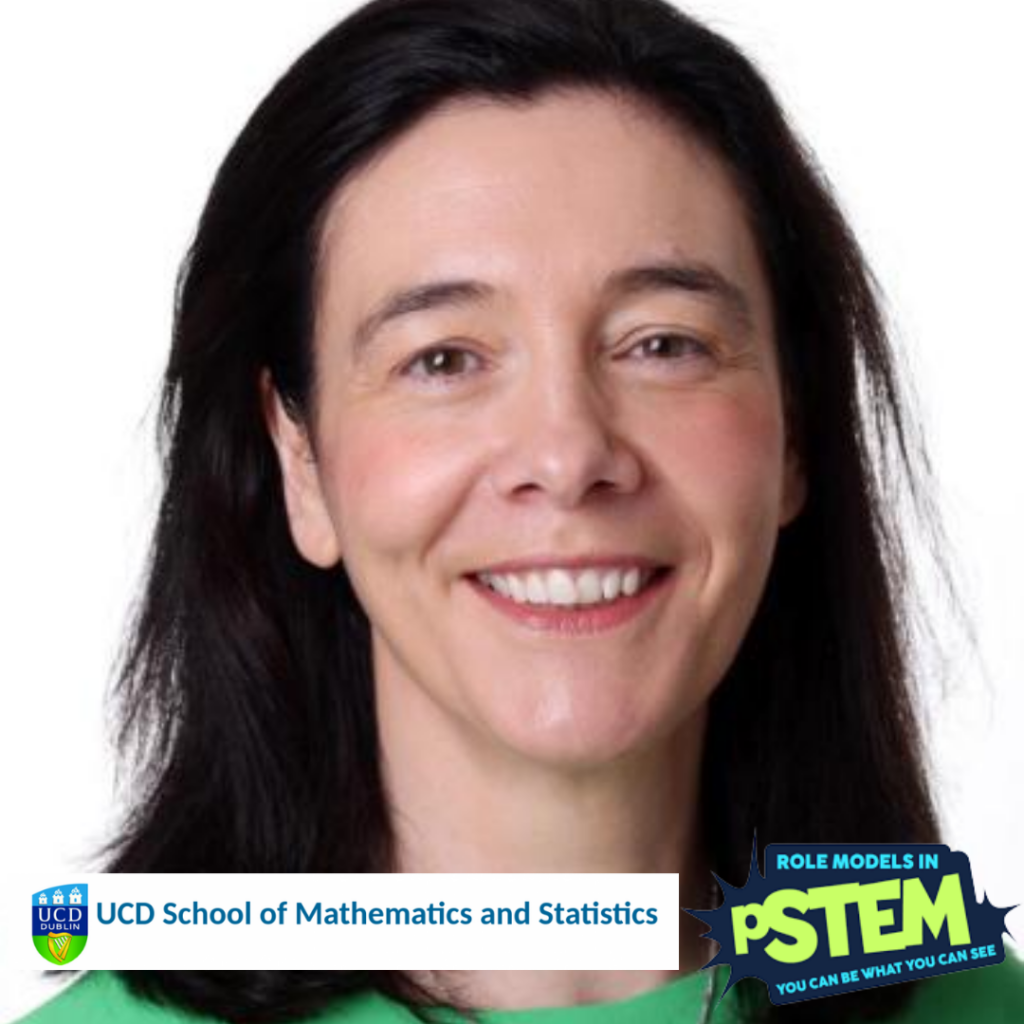
Here at Shona, we love when we get to meet someone who is stepping outside of what the world considers “the norm”. It’s so interesting to have the opportunity to chat with women who are doing cool, unusual, and interesting jobs. So, we were only delighted when our friends at UCD School of Mathematics and Statistics and UCD School of Computer Science introduced us to their new project ‘Role Models in pSTEM: You can be what you can see’.
The ‘Role Models in pSTEM: You can be what you can see’ project was created to highlight contemporary, positive role models for young women in the subjects of physics, mathematics, computer science, and engineering. The project hopes to make more young women aware of the very many career paths and opportunities available to them by pursuing these subjects. Following the UNESCO framework of factors influencing girls’ and women’s participation in STEM, the interviews explore the backgrounds and influences of each of the role models and highlight what they enjoy about what they do. The project was designed by Dr Aoibhinn Ní Shúilleabháin and Dr Catherine Mooney, who work in the fields of mathematics and computer science, and was funded by the HEA and Institute of Physics.
So, we are delighted to introduce you to some incredible role models over the next couple of weeks. Today we have Dr. Sandra Collins. Dr. Sandra is the Director of the National Library of Ireland.
Question 1: Could you tell us what you do and What drew you to your role as the Director of the National Library of Ireland?
I’m the Director of the National Library of Ireland. Our job is to collect, protect and make accessible the recorded memory of Ireland. We care for over 12 million objects including books and newspapers from across the country, photographs and manuscripts, maps and prints and drawings, and now increasingly, digital material including websites, social media, electronic documents, emails, digital photos.
I’m the Director of the National Library of Ireland. Our job is to collect, protect and make accessible the recorded memory of Ireland. We care for over 12 million objects including books and newspapers from across the country, photographs and manuscripts, maps and prints and drawings, and now increasingly, digital material including websites, social media, electronic documents, emails, digital photos.
Question 2: Were you drawn into studying STEM subjects in Secondary school?
In secondary school, I had a fabulous maths teacher and that is where I remember my love of science and mathematics growing. I loved figuring out my maths homework, and getting the difficult questions right gave me a real sense of achievement. I found it exciting to read about science and used to spend my pocket money on New Scientist and Scientific American, and pour over the articles about particle physics, I was such a nerd but I loved it and wanted more!
Question 3: Were there any particular difficulties or challenges you had to overcome in terms of your study or work?
I think it’s a challenge to be the only girl or woman in the room. When I was studying maths and maths physics in university, I was the only girl in the class. When I got my first job as a maths lecturer, I was one of two women in the maths department. Feeling different or unique can be challenging and uncomfortable. You can use up a lot of your energy carefully preparing and summoning your courage to act confident even when you don’t feel it.
I found many times that I would be overlooked, the boys or men in the room didn’t expect me to know the answer or to have valuable contributions. I remember when I finished my first year in college and the exam results were published on a noticeboard in the corridor – the boys all rushed up to the noticeboard arguing over who would be first in the class – they were surprised when they saw it was me because they had assumed it would be one of the male students.
Question 4: What do you wish someone would have told you when you were younger?
I’ve been lucky to have great mentors who have given me lots of good advice throughout my life. Most importantly I had women in my early life who believed in me and told me I could succeed, like my Mum and my favourite maths teacher. My female friends have always been great for support and advice and as I got older they also helped me recognise and navigate any discrimination I encountered. I also had some wonderful senior male scientists who gave me lots of encouragement and also lots of practical advice including things I had little experience of, such as chairing meetings and dealing with conflict.
So, we don’t know about you, but we definitely would love to hear more about Dr. Sandra and her career. Sure you know us at this stage, of course, we have you covered!
Check out the video below, courtesy of Dr. Sandra and our friends at UCD College of Science.
More videos and resources are available at: https://www.ucd.ie/mathstat/rolemodelsinpstem/
If you would like to support us and the work that we do, you can find out more below




